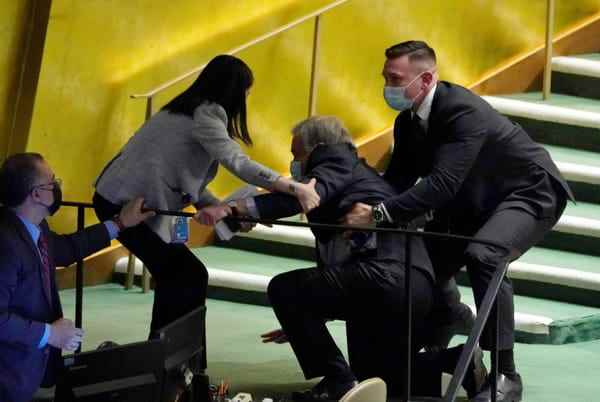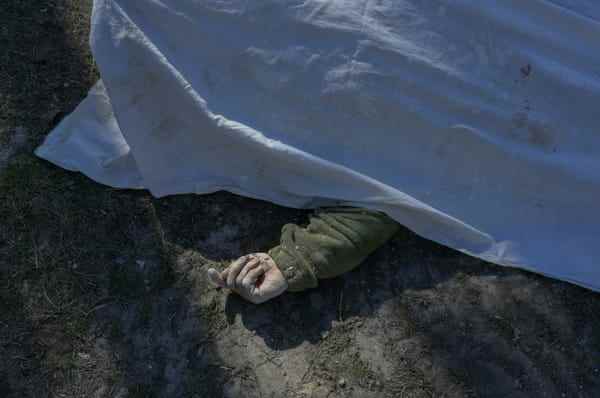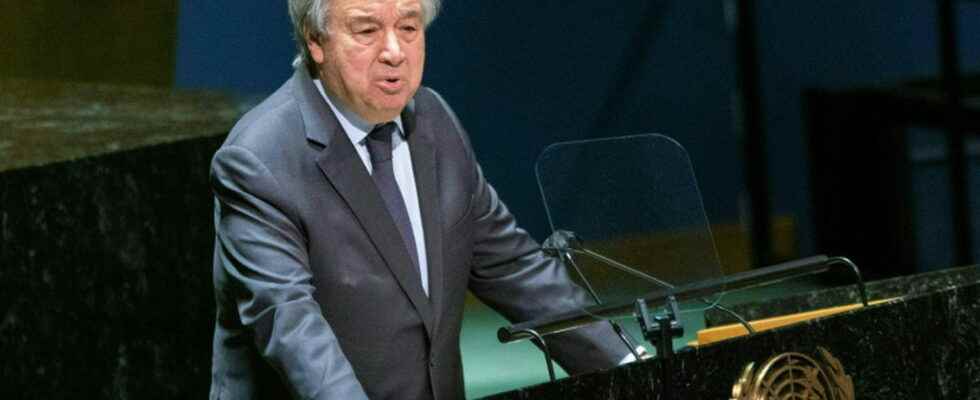In March 2020, the head of the UN, Antonio Guterres, had been hard-hitting and very present at the start of the Covid-19 pandemic. Two years later, he seems off-screen and disarmed in the face of Russia’s war in Ukraine.
“He is very disturbed,” confirms to AFP a senior UN official requesting anonymity. Remained silent in the face of the long Russian military deployment at the gates of Ukraine, the former Portuguese Prime Minister still said, shortly before the invasion, that he was “convinced” that the worst would not happen.
On February 23, during an emergency meeting of the Security Council in New York, the UN Secretary General begs: “Mr. Putin, do not invade”. At the end of this surreal session in which Russian tanks entered Ukraine, he implores: “Mr. Putin, withdraw your troops!”
Already “very pessimistic” at the end of 2021 on the future of the world, Antonio Guterres, 73 years old on April 30, is even more so today with a “senseless war” in the heart of his continent of origin, Europe, adds the same official.
“Guterres is quite affected, it’s his nightmare”, deciphers an ambassador on condition of anonymity.
According to several diplomats, the one who allowed “the UN to survive four years of Trump” and followed up with the pandemic hit the mark by quickly denouncing a violation by Russia of the United Nations Charter which prohibits “the use of force … against the territorial integrity or political independence of any State” (article 2).
Even if the Baltic countries and Ukraine “find that he should hit harder, have a much clearer, offensive language”, told AFP a diplomat asking not to be identified.

UN Secretary General Antonio Guterres helped after falling while leaving the United Nations General Assembly Chamber on March 2, 2022
© AFP – TIMOTHY A. CLARY
Thanks to its legal argument, in a “historic vote” on March 2, 141 countries out of 193 members condemned Russia in the UN General Assembly. Leaving the hemicycle, Antonio Guterres stumbles and falls, without consequences, as the harbinger of insoluble difficulties.
The main one is a categorical refusal by the master of the Kremlin of any contact with the UN on Ukraine. Putin was within meters of Guterres in Beijing during the opening ceremony of the Olympics but the two officials did not speak to each other for an unknown reason.
“Putin is not happy” with his reaction to the invasion, confides the same ambassador.
– “Telephone style” –
Cut off from Moscow, Guterres plunges back into discretion at the risk of being criticized. Distraught, a member of his entourage told AFP “cross your fingers” for an external event to stop the war…
And if the head of the United Nations “woke up before the film ended?”, ironically Bertrand Badie, professor of international relations in Paris. “Where is Guterres?” Adds historian Stephen Schlesinger in New York, in a column for the Passblue media specializing in the UN. “So far, he has not made any breakthrough towards stopping the war,” laments this expert.
Does he plan to go to Ukraine when he has only exchanged once since the February 24 invasion with President Volodymyr Zelensky?
“The United Nations system as a whole, the secretariat and those reporting to the secretary-general are on the front line,” replies its spokesperson, Stéphane Dujarric. It is focused “on diplomacy”, “humanitarian aid” and alerts on “the global impact of this crisis” in the world, he told AFP.

Image on March 19, 2022 of a dead Ukrainian soldier, covered with a sheet, near a military school bombed by Russia in Mykolaiv, southern Ukraine.
© AFP – BULENT KILIC
Antonio Guterres “is not a gesticulator”, argues the senior official. His personality is “a telephone style”, he insists, stressing the difficulty for a UN boss to interact in a conflict involving the two leading military powers, Russia and the United States.
When it “will be necessary to renew the threads of dialogue, to find a solution, the secretary general will be able to play a role of mediator”, wants to believe an ambassador. It also has the opportunity right now to steer the redefinition of a world order.
After the war, “the international order – particularly the UN – will face serious questions about whether it remains fit for purpose,” said Ashish Pradhan of the International Crisis Group think tank.
According to him, “the implications for the Security Council, for example, are likely to be quite serious” if the impasse that develops there continues.
During a speech on March 10, Antonio Guterres acknowledged that the war in Ukraine was bringing the world back “to the founding promise of the Charter of the United Nations: to save succeeding generations from the scourge of war”.
“We have important work to do to improve global governance” and “if we do not act, it may be our children, or their children, who will be forced to rebuild the international order in the aftermath of a disaster “, he warned.
All rights of reproduction and representation reserved. © (2022) Agence France-Presse
